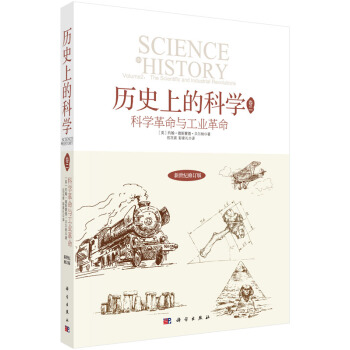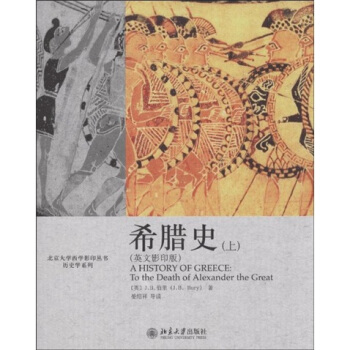

具体描述
編輯推薦
1920年我上學的時候就使用瞭這本書,它注重政治史和軍事史,在大量使用可靠的文獻和考古材料的同時,對史料價值偏低的神話傳說也有謹慎的引用。毫無疑問,它具有最高的品質。——N.G.L.Hammond,布裏斯托大學希臘史教授
伯裏教授的《希臘史》是大學教材與專業學者撰寫的曆史普及讀物兩方麵嘗試的完美結閤。
——Ronald Burrows,倫敦大學國王學院前院長
內容簡介
《希臘史(英文影印版)(上下)》以平實流暢的語言、均衡閤理的框架和紮實全麵的史料,自1900年初版以來,成為西方世界最受歡迎的希臘史通史教材和入門讀物,並暢銷不衰,至今仍是歐美各大學曆史課堂上的必讀經典。《希臘史(英文影印版)(上下)》以伯裏生前親自修訂過的1913年版為底本影印。首都師範大學曆史係教授、希臘史專傢晏紹祥為《希臘史(英文影印版)(上下)》撰寫導讀,並補充提供瞭數十年來新的研究成果和重要著作,方便讀者在《希臘史(英文影印版)(上下)》的基礎上,對希臘史做進一步的瞭解。作者簡介
J.B.伯裏(John Bagnell Bury,1861—1927),英國著名曆史學傢、古典學傢和文獻學傢,1902年獲任劍橋大學欽定近代史講座教授。曾涉足多個領域的研究,包括古代希臘、古代羅馬、19世紀教皇史、西方思想史等,而尤以晚期羅馬帝國史和拜占庭史見長。其代錶作有《晚期羅馬帝國:從阿卡狄烏斯到愛裏尼》(1889年)、《東羅馬帝國史:從愛裏尼垮颱到巴塞爾一世登基》(1912年)、《希臘曆史學傢》(1909年)、《思想自由史》(1914年)、《進步的觀念》(1920年)、《晚期羅馬帝國史:從提奧多西一世之死到查士丁尼之死》(1923年)、《19世紀教皇史,1864—1878》(1930年)等,並曾為吉本《羅馬帝國衰亡史》做校勘和注釋。內頁插圖
目錄
導讀作者簡介
1913年版序言
第一版序言
引言希臘與愛琴海
第一章 希臘的開端與英雄時代
希臘人的起源
愛琴文明剋裏特
邁锡尼文明(公元前1600一前1100年)
阿該亞人與特洛伊戰爭
荷馬史詩
政治與社會組織
多裏安人的徵服
希臘人嚮東愛琴海的擴張
希臘君主製的衰落與共和製的興起
腓尼基人與希臘人的往來
希臘人對早期希臘史的重建
第二章 希臘的擴張
希臘殖民的起因與特徵
黑海、馬爾馬拉海和北愛琴海海岸的殖民地
西部地中海的殖民地
貿易與海上冒險的興起
呂底亞對希臘的影響
埃及的開放
昔蘭尼
第三章 斯巴達的崛起
斯巴達及其政體
斯巴達徵服美塞尼亞
斯巴達的內部發展及其製度
剋裏特的政體
阿爾戈斯的霸權與衰落奧林匹亞賽會
民主運動立法者與僭主
中希臘的僭主政治
神聖戰爭泛希臘賽會
第四章 阿提卡的統一與雅典民主製的奠基
阿提卡的統一
雅典共同體的建立
公元前7世紀的寡頭統治
梭倫立法與民主製的奠基
第五章 雅典的崛起
對薩拉米斯和尼薩亞的徵服
庇西特拉圖治下的雅典
斯巴達的崛起以及伯羅奔尼撒同盟
庇西特拉圖傢族的倒颱與斯巴達的乾預
國王剋列歐美涅斯與斯巴達的第二次乾預
剋裏斯梯尼改革
民主製的第一次勝利
第六章 波斯嚮愛琴海的推進
波斯的興起與呂底亞王國的滅亡
波斯對亞洲希臘人的徵服
波斯徵服埃及薩摩斯的波利剋拉底斯
大流士治下的愛奧尼亞
大流士遠徵歐洲:徵服色雷斯
愛奧尼亞人反波斯的起義
大流士第二次與第三次的歐洲遠徵:馬拉鬆之役
雅典與厄基那的爭端
雅典民主製的發展
即將成為海上強國的雅典
第七章 希臘的危機波斯與迦太基入侵
薛西斯的備戰與進軍
希臘的備戰
溫泉關戰役與阿提密西安戰役
薩拉米斯之戰
薩拉米斯戰役的影響
為另一次戰役做準備
普拉提亞之戰
密卡爾之戰與奪得塞斯都斯
敘拉古的僭主格倫
迦太基入侵西西裏希米拉戰役
希倫和塞隆治下的敘拉古與阿剋拉加斯
(公元前)6世紀的宗教運動
奧爾弗斯教的傳播
愛奧尼亞的理性
第八章 雅典帝國的建立
斯巴達的地位和帕薩尼亞斯的經曆
提洛同盟
雅典和比雷埃夫斯的設防
地米斯托剋利的放逐和死亡
提洛同盟變成雅典帝國
奇濛的政策與放逐
第九章 伯裏剋利領導下的雅典帝國
雅典民主製的完善
雅典人與伯羅奔尼撒人的戰爭
與波斯人的和平協議
雅典的挫摺三十年和約
伯裏剋利的帝國主義政策
神廟的重建
比雷埃夫斯雅典貿易的發展
雅典人在意大利的野心
雅典對色雷斯和黑海的政策
薩摩斯暴動
高等教育智者
第十章 雅典人與伯羅奔尼撒人的戰爭(公元前43l一前421年)
戰爭的序幕
戰爭縱覽
底比斯人攻打普拉提亞
瘟疫
對普拉提亞的圍攻和占領
米提林叛亂
西部希臘人的衝突
德摩斯梯尼在西部的作戰
……
第十一章 雅典帝國的衰亡
第十二章 斯巴達霸權及其對波斯的戰爭
第十三章 雅典的復興及其第二次結盟
第十四章 忒拜霸權
第十五章 敘拉古帝國及其與迦太基的爭奪
第十六章 馬其頓的崛起
第十七章 徵服波斯
第十八章 徵服遠東
年錶
注釋和參考文獻
索引
進一步閱讀書目
精彩書摘
In Attica there are many relics. On the Athenian Acropolis thereare a few stones supposed to belong to a palace of great antiquity,but we can look with more certainty on some of the ancient foun-dations of the fortress wall. This wall was called Pelargic or Pelas-gic by the Athenians; and it seems likely that the word preservesthe name of the ancient inhabitants of the place, the Pelasgoi31But the Pelasgians of Athens were not the only people of the Athe-nian plain. Towards the northern end of this plain, a vaulted tombseems to record ancient princes of Acharnae. The lords of Thoricushad tombs of the same fashion; and at Eleusis there is similar evi-dence. In many other places in Attica graves of this period havebeen found; at Prasiae a number of remarkable rock-tombs re-sembling those in the lower town of Mycenae. In Boeotia there are some striking memorials. Remains of a pal-ace, with some traces of wall paintings, have been found on Cad-meia, the citadel of historic Thebes. On the western shores of thegreat Copaic marsh a people dwelled, whose wealth was proverb-ial; and their city Orchomenus shared with Mycenae the attributeof "golden" in the Homeric poems. Paintings on the walls of theirpalace represented scenes from the sports of the bull-ring, and pil-lar shrines, which must have been executed by artists of the sameschool as those who wrought at Cnossus. One of their kings built agreat sepulchral vault under the hill of the citadel, and later gen-erations took it for a treasury. It approached, though it did notquite attain to, the size of the Treasure-house of Atreus itself; andit had a second chamber covered by a stone ceiling which wasadorned with a curious design in low relief, an arrangement ofmeandering spirals and fan-shaped leaves bordered by rosettes,producing the effect of a carpet. The same design which deckedthe burying-place of Orchomenus in stone was used by the paintersof some lord of Tiryns to adorn the walls of his palace; and one istempted to see both in the ceiling and in the sepulchre the work ofcraftsmen from Crete.前言/序言
THE excavations of Sir Arthur Evans at Cnossus began in theyear in which the first edition of this History of Greece appeared(I9oo). His amazing discoveries there, followed and supple-mented by the work of other explorers on many other prehistoricsites in Crete, have transformed our knowledge of the Aegeancivilisation of the second millennium, and placed in a new focusthe problems of early Greece. In consequence of these dis-coveries, and of other researchs (among which I may mentionespecially Professor Ridgeways Early Age of Greece and Mr.Leafs Troy), it has been necessary to rewrite the greater part ofChapter I. An account of Cretan civilisation is included; theview that the pre-Achaean inhabitants of Greece were not Greeks,which it seems to me no longer possible to maintain, is aban-doned; and the Trojan War is recognised to be an historicalevent.Outside Chapter I, a few minor changes have been made. Ineed only mention that the accounts of the battles of Salamisand Plataea have been-partly rewritten.
用户评价
對於非專業人士來說,這套書的學術深度可能會構成一定的門檻。特彆是涉及到古希臘的法律體係、復雜的軍事編製或者哲學思潮的早期演變時,如果沒有一定的背景知識作為支撐,初讀時可能會感到吃力。我記得有幾章關於柏拉圖學園思想流變的部分,我不得不反復閱讀,甚至需要藉助一些導讀材料纔能理清其中的邏輯鏈條。但這恰恰體現瞭這本書的價值所在——它不媚俗,它提供的是高質量的知識原件。它更像是一份嚴謹的學術地圖,而不是一份旅遊指南。如果你隻是想瞭解一些諸如“斯巴達人如何訓練”、“特洛伊戰爭的概況”這類簡單信息,這本書可能顯得過於繁瑣和深入。但如果你想真正理解為什麼古希臘文明會産生如此深遠的影響,並想探究其思想根源,那麼這種“門檻”反而成為瞭一種篩選機製,保證瞭閱讀者的專注度和投入度。
评分這套影印本的裝幀和紙張,雖然在便攜性上有所欠缺,但作為案頭工具書卻是絕佳的選擇。我習慣將它平攤在書桌上,旁邊放著筆記本和筆,隨時準備做標記和記錄。由於是英文原版,它提供瞭一個直接接觸一手研究材料的機會,這對於任何想要進行更深層次研究的人來說都是寶貴的。它避免瞭翻譯過程中可能齣現的理解偏差或風格損耗。每次翻閱,那種厚重的紙張和墨香混閤在一起的氣味,都像是一種無聲的儀式感,提醒著自己正在與一位偉大的曆史學傢進行跨越時空的對話。它不追求時髦的包裝或輕快的節奏,它追求的是知識的準確傳遞和曆史的忠實再現。這套書,更像是一個可以信賴的、沉默的嚮導,它指引方嚮,但具體的探索之路,需要讀者自己一步一個腳印地走下去。
评分書中所呈現齣的那種冷靜、剋製的敘事口吻,是西方古典史學傢的標誌性風格。作者似乎對任何帶有強烈主觀色彩的評價都持保留態度,他更傾嚮於呈現“事實”,並引導讀者自己去建構理解。比如,在描述雅典民主的興衰時,他並沒有簡單地將其描繪成一個光榮的頂點或必然的衰落,而是細緻地剖析瞭其內部的張力、精英階層的博弈以及民眾情緒的波動。這種多維度的視角,使得我們看待曆史人物時,不再是臉譜化的英雄或惡人,而是生活在特定曆史框架下的復雜個體。我尤其欣賞作者在處理不同城邦之間的關係時,那種近乎於地緣政治學的分析框架,將軍事、貿易、文化交流等因素編織在一起,形成瞭一個相互作用的復雜係統。這種宏觀的把握能力,展現瞭作者深厚的曆史洞察力,讓人在閤捲之後,仍能感受到那個時代社會運作的復雜性和精妙性。
评分這本書的封麵設計,說實話,初看之下有些樸素,是那種典型的學術書籍的風格,厚重的紙張和略帶泛黃的內頁,一下子就把人拉迴瞭那個遙遠的年代。我拿到手的時候,首先感受到的是它沉甸甸的分量,這重量似乎不僅僅是物理上的,更像是一種曆史的厚度。翻開扉頁,那熟悉的英文印刷體,每一個字母都像是帶著曆史的塵埃,雖然是影印版,細節處理得還算不錯,但偶爾還是能看到一些年代留下的痕跡,這反而增添瞭一種彆樣的真實感,仿佛我手裏拿的不是一本現代再版的書,而是直接從圖書館的舊書架上取下的原版珍藏。我特彆留意瞭一下目錄,那清晰的章節劃分,預示著內容的嚴謹和深度,不是那種走馬觀花式的曆史普及讀物,而是準備深入挖掘某個特定時期的社會結構、政治演變乃至哲學思想的精髓。這種紮實的結構,對於一個渴望係統學習的讀者來說,無疑是極大的吸引力,讓人忍不住想立刻沉浸其中,去觸摸那些古老文明的脈搏。
评分閱讀體驗上,這套書的排版確實考驗眼力,影印的特點使得字體的清晰度不如現代激光打印,有些地方可能需要湊近瞭纔能辨認。不過,一旦你適應瞭這種略顯古舊的閱讀節奏,反而能從中體會到一種獨特的韻味。我發現作者在論述某個特定事件時,習慣於引用大量的原始文獻片段,這些英文的引文,雖然增加瞭理解的難度,但同時也極大地增強瞭論證的力量和說服力。這就像是作者拉著你,親自去觸摸曆史的源頭,而不是僅僅聽他轉述。我常常會暫停下來,去查閱那些陌生的詞匯和曆史背景,這個過程本身就是一種學習的深化。它強迫你慢下來,去咀嚼那些字裏行間蘊含的復雜信息,而不是像現在很多快餐式閱讀那樣,一掃而過,不留痕跡。這種需要主動思考和探究的閱讀方式,讓我感覺自己的知識結構正在被一點點地夯實,非常過癮。
评分全英文,插圖有點模糊,其他的都還好,畢竟國內像這樣的書很少。
评分送货及时,包装完好。英文影印版。
评分高等教育智者
评分瘟疫
评分腓尼基人与希腊人的往来
评分编辑本段
评分第三章 斯巴达的崛起
评分神圣战争泛希腊赛会
评分第十七章 征服波斯
相关图书
本站所有內容均為互聯網搜索引擎提供的公開搜索信息,本站不存儲任何數據與內容,任何內容與數據均與本站無關,如有需要請聯繫相關搜索引擎包括但不限於百度,google,bing,sogou 等
© 2025 tushu.tinynews.org All Rights Reserved. 求知書站 版权所有

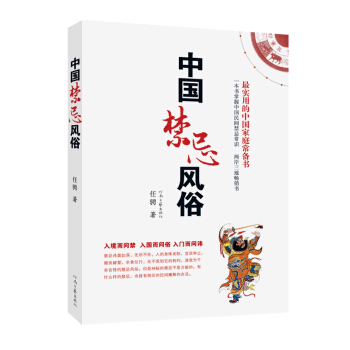
![世界古文明书系 千佛长廊的高棉、吴哥窟 [The Khmers] pdf epub mobi 电子书 下载](https://pic.tinynews.org/11340187/5448b0a4N87d131a4.jpg)
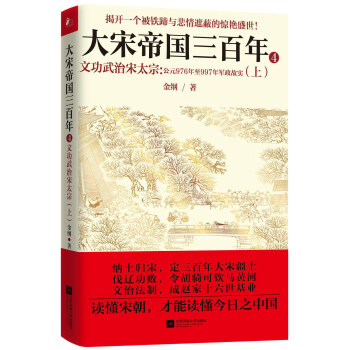

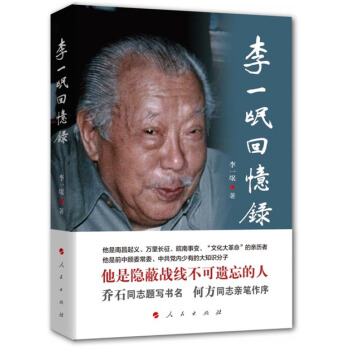




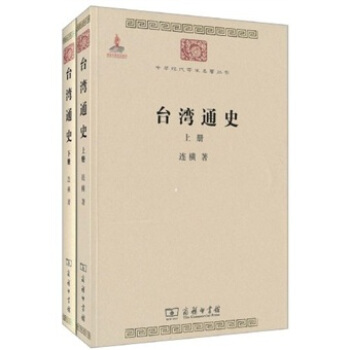
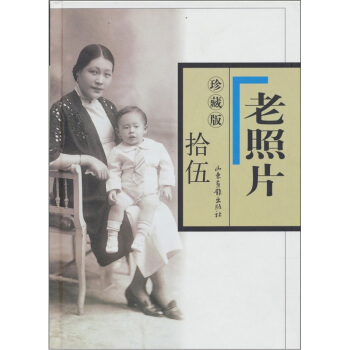
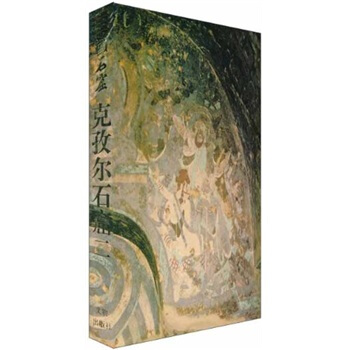
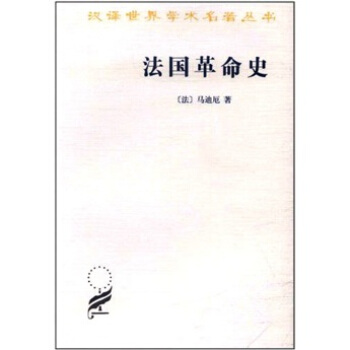
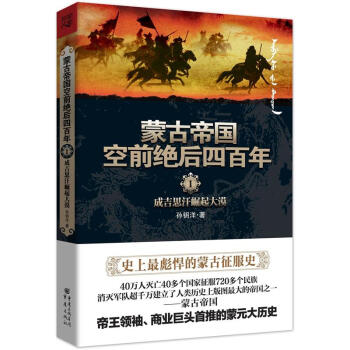

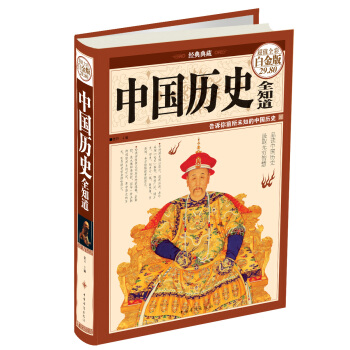
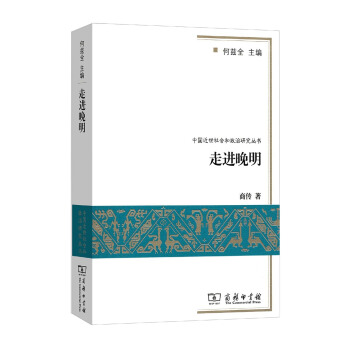

![货币野史 [Money: The Unauthorised Biography] pdf epub mobi 电子书 下载](https://pic.tinynews.org/11609389/54b71944Na45adefd.jpg)
